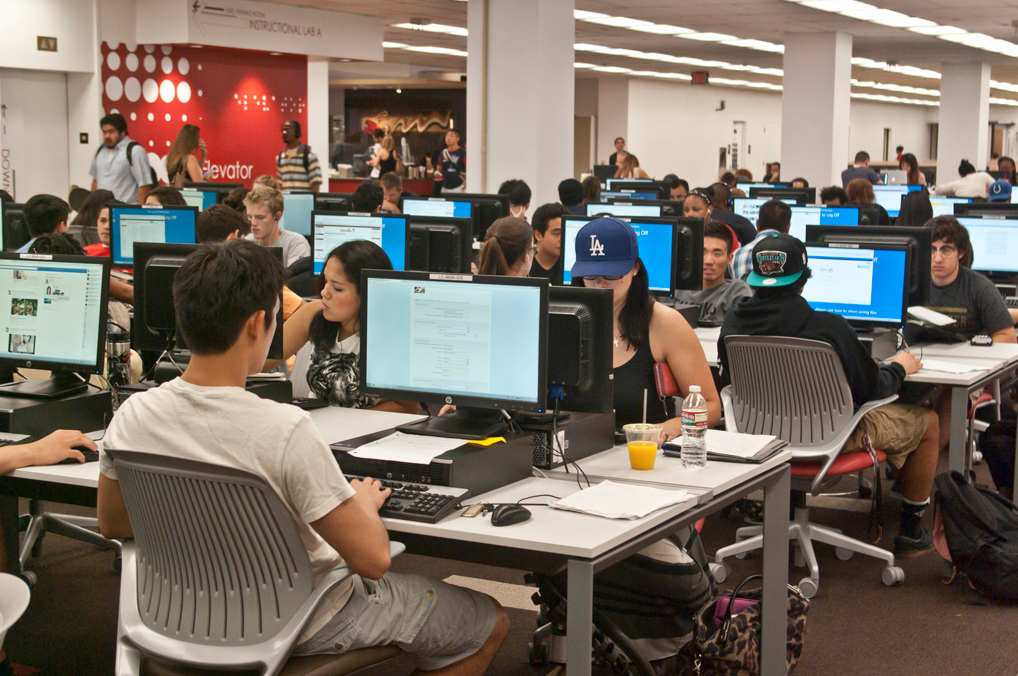Across the CSU, students working on research papers know where to turn. They open their laptop, log in to their university’s library website and then use the dozens of databases at their disposal to search for relevant articles.
The databases are part of the Electronic Core Collections, a system created to provide students at every CSU campus access to the same journals, articles and e-books. This means students have access to the materials they need to succeed, whether they’re at a large, wealthy campus or a smaller one with fewer resources.
For CSU Bakersfield, the system is a vital part of the library’s offerings.
“We’re very dependent on the ECC for resources,” said Curt Asher, interim dean of the Walter W. Stiern Library at CSU Bakersfield.
Prioritizing equal access
The core collections allow universities with smaller budgets and smaller programs to access the same set of publications as students at larger universities, putting students on equal footing.
The priority is to make sure every student has the same opportunities, Asher said.
“All students should have equal access to materials throughout the CSU,” Asher said.
In addition to the core collections, each campus can buy their own subscriptions, but the materials available can vary from campus to campus, depending on a university’s funding or programs, said Eddie Choy, director of academic technology services contract management.
“A student going from one campus to another might not have access to the same resources to do their research,” Choy said.
Flexing their purchasing power
The system not only allows students access to the same materials, but also allows the CSU greater purchasing power when bargaining with publishers. Because the CSU sets aside $5 million for materials, they’re able to buy more materials at a discount from publishers, Choy said.
“When we get together as 23 campuses, we buy a lot more and we get discounts, sometimes 80 percent,” Choy said.
As a group, the CSU campuses can buy more resources than they could individually, benefitting all students in the end.
The case for expanding the collections
But the ECC is not a perfect system. More than a decade ago, $5 million was set aside per year for purchases for the ECC. Over the years, the cost of materials has risen, but the amount allotted for digital acquisitions has stayed the same.
Until now.
Choy has asked the Chancellor’s Office to increase the amount of funding for the ECC by $10 million, to a total of $15 million. That money would not only compensate for inflating costs, recovering resources that had to be cut out, but also allow the CSU to further expand its core collections.
That means that students at every campus will have equal access to the same vital resources. For CSU Bakersfield, that opens up a whole realm of resources to students, Asher said.
“It would bring equity of resources and allow our students to have the same sort of research opportunities as students in other schools have,” Asher said.
; ?>)
